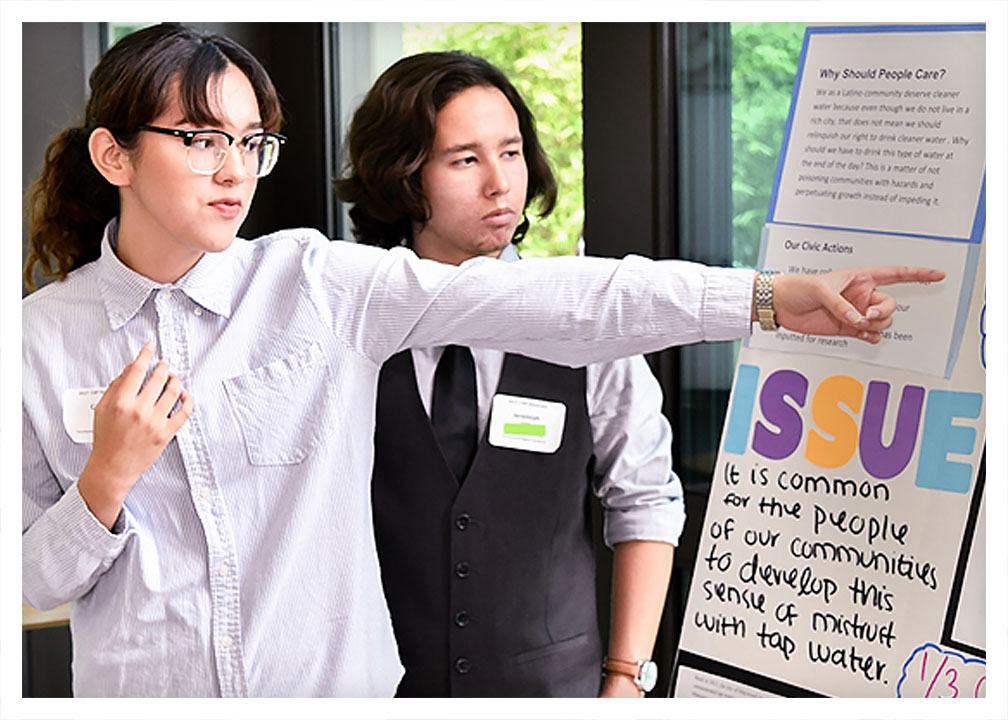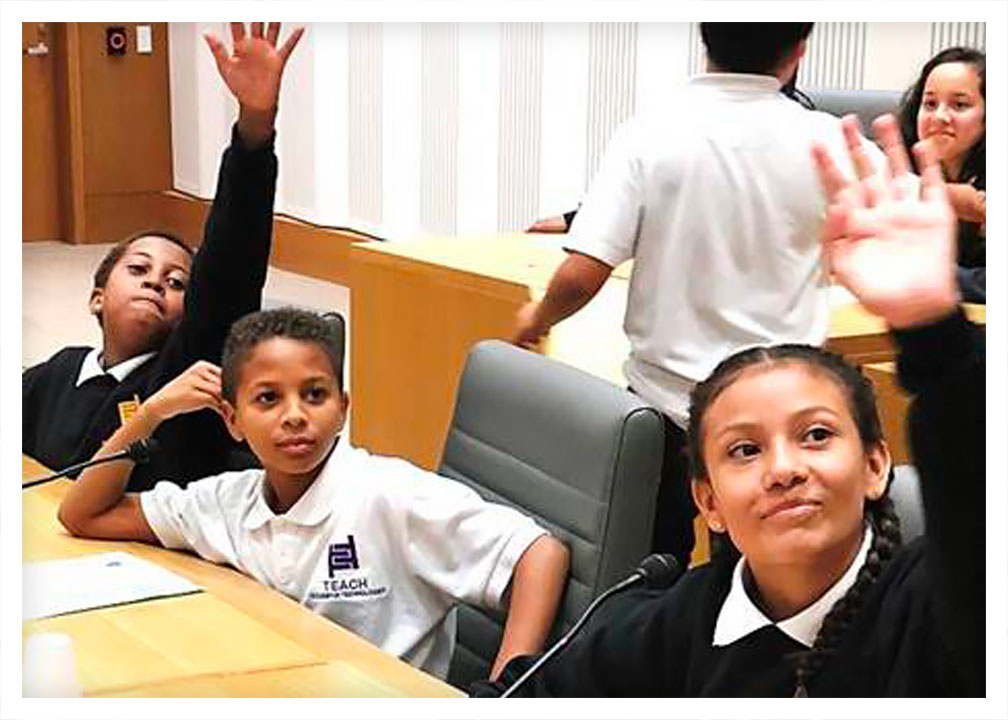Overview
By the time young people graduate from high school, it is crucial to the strength and longevity of our democracy that they have the knowledge, skills, and dispositions necessary to be civically engaged throughout their whole lives. Teachers in our K-12 schools in California play a vital role in achieving this objective, and the materials presented on this page are meant to help teachers in doing just that.
Many people mistakenly believe that civics is a subject best left to California students’ 12th grade U.S. government course (“Principles of American Democracy”). Indeed, civics is central to that course. But if we wait to build students’ civic learning until just before they graduate, we will have waited too long. Civic education actually begins as early as kindergarten and runs consistently through every grade level in elementary, middle, and high school. Civics is a part of teaching and learning in geography, U.S. history, world history, and in the 12th grade government course, too.
The resources created by the Content, Literacy, Inquiry, and Citizenship Project have been designed to support teachers as they implement the HSS Framework and teach about civic education. In addition to the resources developed by this project, the following are links to other resources that educators may find helpful to support their teaching practice.
Helpful Resources to Consider
Project LEAD
Project LEAD is a fifth-grade curriculum designed to teach children that the choices they make today can affect their lives forever. The curriculum focuses on the legal and social consequences of juvenile crimes, such as truancy, illicit drug use, shoplifting and graffiti, as well as techniques for resolving conflict, resisting peer pressure, promoting tolerance, and respecting diversity. The program concludes with students performing a scripted mock trial, putting into practice what they have learned about the criminal justice system with the help of volunteer facilitators from the district attorney’s office. Project LEAD is a joint effort of Constitutional Rights Foundation and the Los Angeles County District Attorney’s Office. (Grade 5)
Civic Action Project
CAP is a free project-based learning program for civics and government from Constitutional Rights Foundation. CAP students identify an issue or problem that matters to them, connect it to public policy, then take “civic actions” to make an impact on their selected issue/problem. Students have access to the Toolkit, a step-by-step guide through the civic action process, and the Discuss page to communicate with CAP students nationwide. The free CAP program has been designed for both middle school and high school courses. In high school, CAP is applicable in regular and AP U.S. government courses. (Grades 6-8 and 9-12)
The Challenge of Democracy
These free, downloadable, and reproducible lessons for high school teachers focus on key areas of U.S. history and contemporary society in the areas of diversity, violence, governance, and information. Each lesson is designed to help students gain proficiency in meeting California’s Common Core State Standards using interactive methods such as role play, simulation, and CRF’s “civil conversation” discussion strategy. Titles include America’s Violent Past, Is Democracy in Decline?, Winner-Take-All: The Two-Party System, and Conspiracy Theories Past and Present. (Grades 9-12)
Civics on Call
This is a one-stop updated list of classroom-ready lessons on issues of the day, including immigration; government surveillance; protest and petitioning the government; and the use of force by police. CRF posts new lessons and updated lessons from its publications Bill of Rights in Action, Criminal Justice in America, and Youth and Police. (Grades 6-12)
Constitution Day
The resources on this page span primary grades through high school, with free lessons related to the U.S. Constitution, the Bill of Rights, and even the world history topics Rome: Republic to Empire and Aristotle: In Search of the Best Constitution. (Grades 3-12)
Law Day
Held annually on May 1, Law Day is a national day set aside to celebrate the rule of law. Law Day provides an opportunity to understand how law and the legal process protect our liberty, strive to achieve justice, and contribute to the freedoms that all Americans share.


